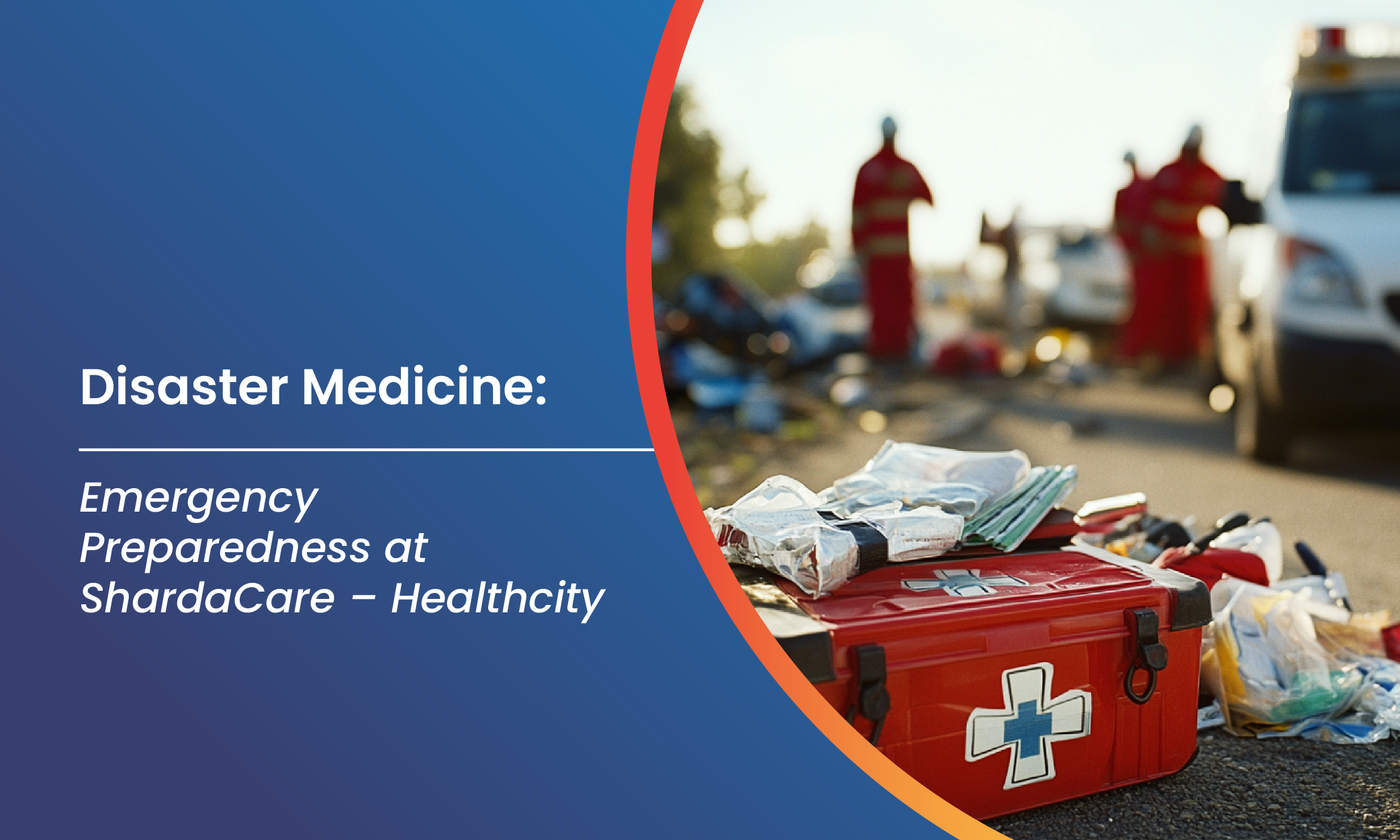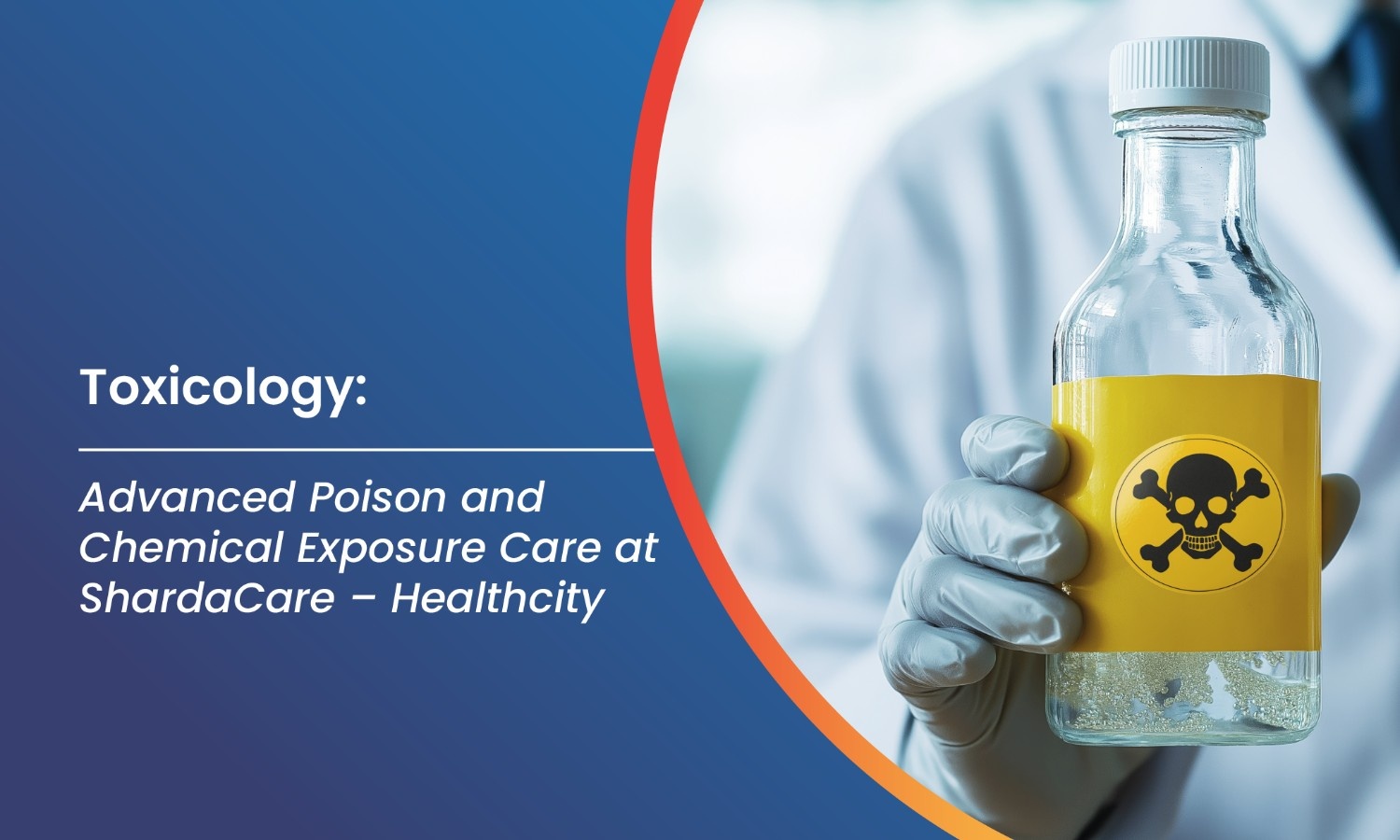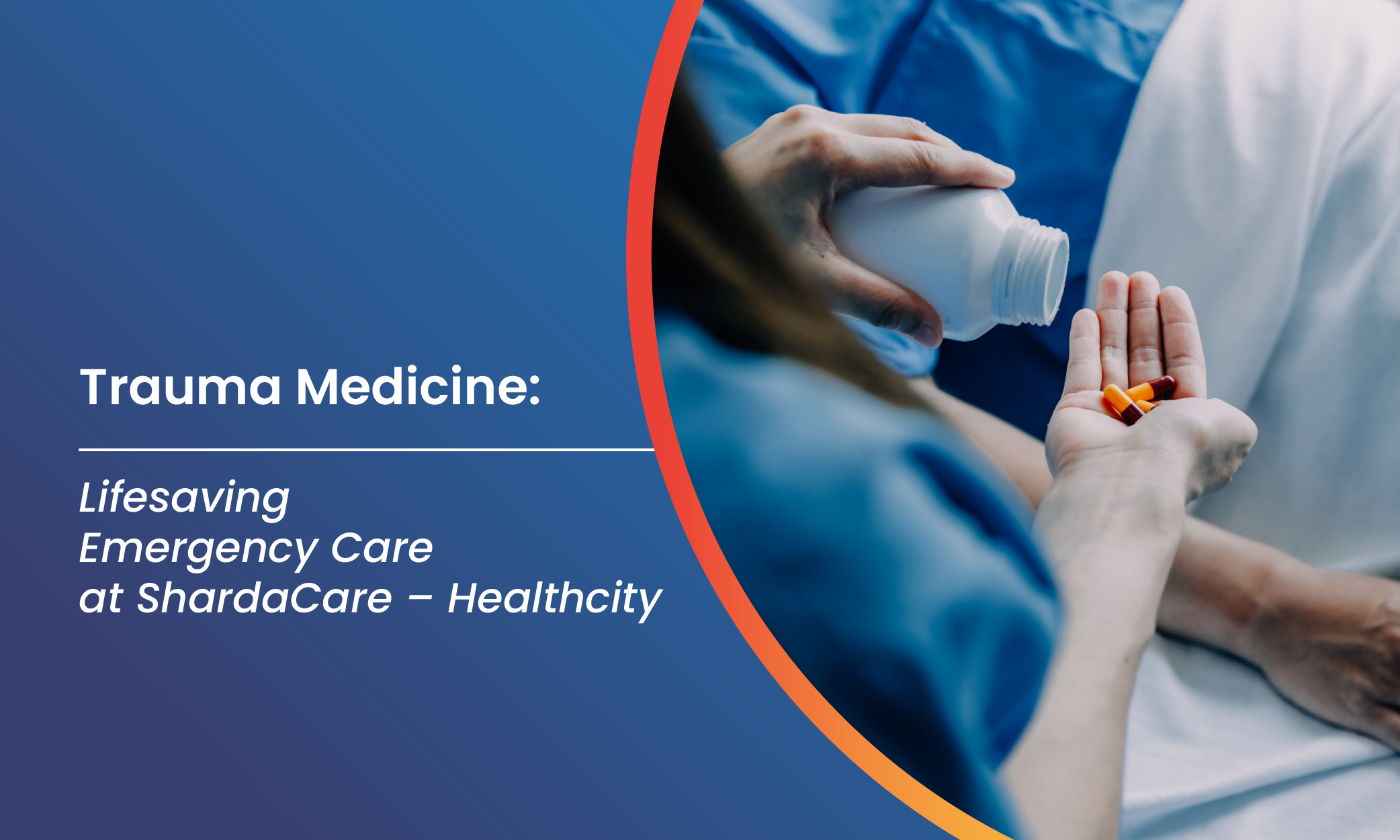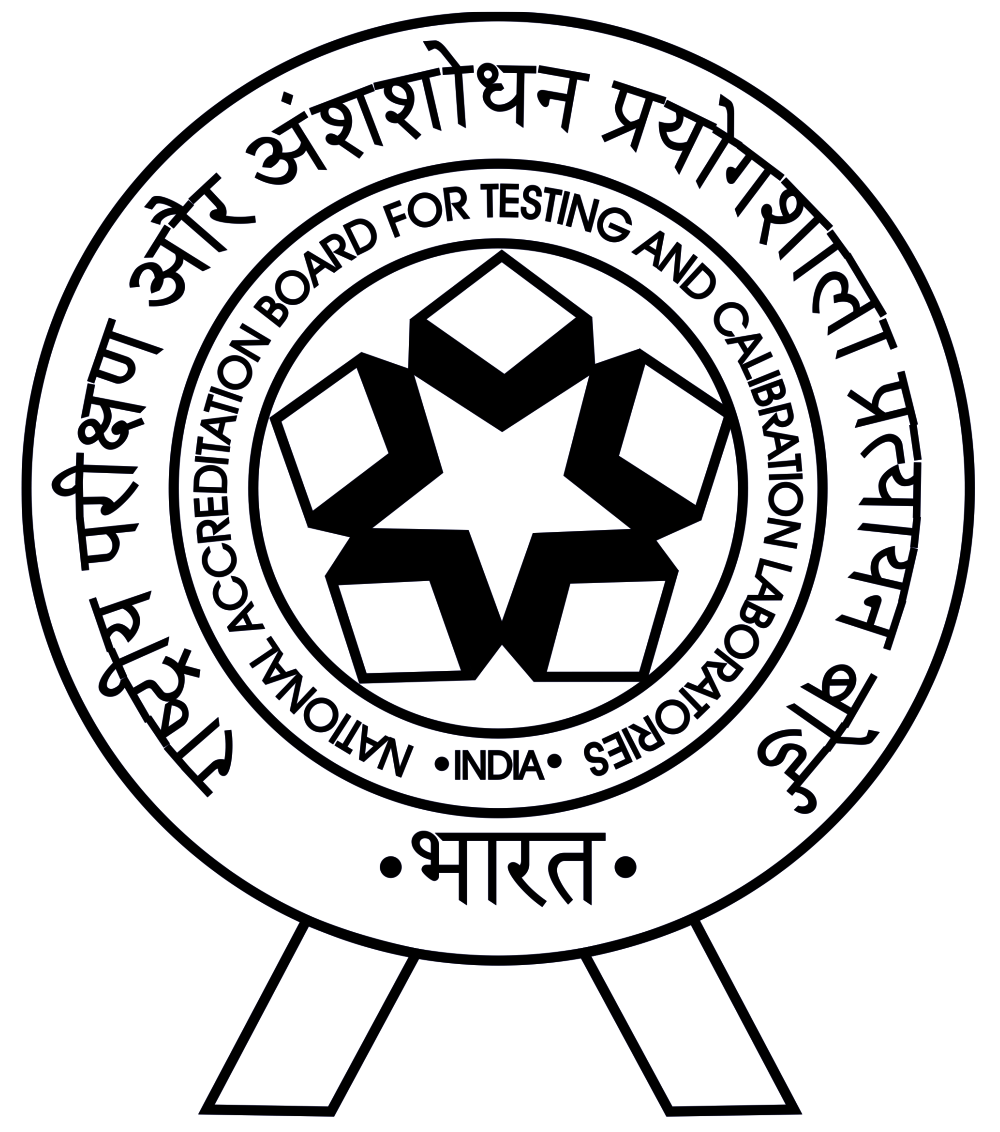
Advanced Disaster Medicine & Emergency Preparedness at ShardaCare – Healthcity
At ShardaCare - Healthcity , we recognize the critical importance of being prepared to respond effectively to disasters and mass casualty events. Our Disaster Medicine centre is designed to ensure that we have the necessary resources, expertise, and protocols in place to provide prompt and efficient medical care in the face of emergencies and catastrophic situations.
Our Disaster Medicine team comprises highly trained and experienced healthcare professionals, including emergency physicians, trauma surgeons, critical care specialists, nurses, and support staff. Together, they form a dedicated unit well-equipped to handle a wide range of disaster scenarios, from natural disasters to man-made emergencies.
The Disaster Medicine program at ShardaCare - Healthcity encompasses the following key components:
- Emergency Preparedness and Response Planning: We have developed comprehensive emergency response plans and protocols that outline the roles and responsibilities of our staff and the necessary steps to take in the event of a disaster. Regular drills and simulations are conducted to ensure our team's readiness and to identify areas for continuous improvement.
- Mass Casualty Triage and Treatment: Our Disaster Medicine team is trained in the principles of mass casualty triage, which involves rapidly assessing and prioritising patients based on the severity of their injuries or illnesses. This ensures that limited resources are allocated effectively, and those with the most critical conditions receive immediate attention.
- Surge Capacity Management: In the event of a large-scale disaster, our hospital is prepared to expand its capacity to accommodate an influx of patients rapidly. We have established protocols for the efficient utilisation of additional resources, such as temporary treatment areas, alternate care sites, and the mobilisation of additional healthcare personnel.
- Decontamination and Isolation Facilities: ShardaCare - Healthcity is equipped with specialised decontamination and isolation facilities to ensure the safe and effective treatment of patients exposed to hazardous materials or infectious agents during a disaster event.
- Coordination and Communication: Effective coordination and communication are essential during disaster responses. Our Disaster Medicine team maintains close collaboration with local, regional, and national emergency management agencies, as well as other healthcare facilities, to facilitate the sharing of information and resources when needed.
- Training and Education: We place a strong emphasis on continuous training and education for our healthcare professionals. Regular workshops, simulations, and exercises are conducted to enhance our team's knowledge and skills in disaster preparedness, response, and management.
- Research and Innovation: ShardaCare - Healthcity is committed to advancing the field of Disaster Medicine through ongoing research and the development of innovative strategies and technologies to improve disaster response capabilities.
At ShardaCare - Healthcity, we understand that disasters can strike at any time, and preparedness is key to saving lives and mitigating their impact. Our Disaster Medicine program is a testament to our dedication to providing the highest level of care and support to our community, even in the most challenging circumstances. With our skilled team, state-of-the-art facilities, and robust emergency response plans, we stand ready to respond swiftly and effectively when disaster strikes.
Looking for an Expert
ShardaCare - Healthcity is home to some of the eminent Doctors in the world.
Book an Appointment




















